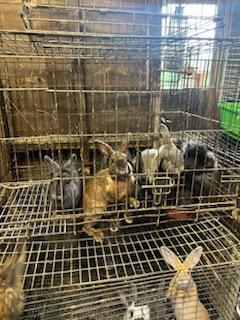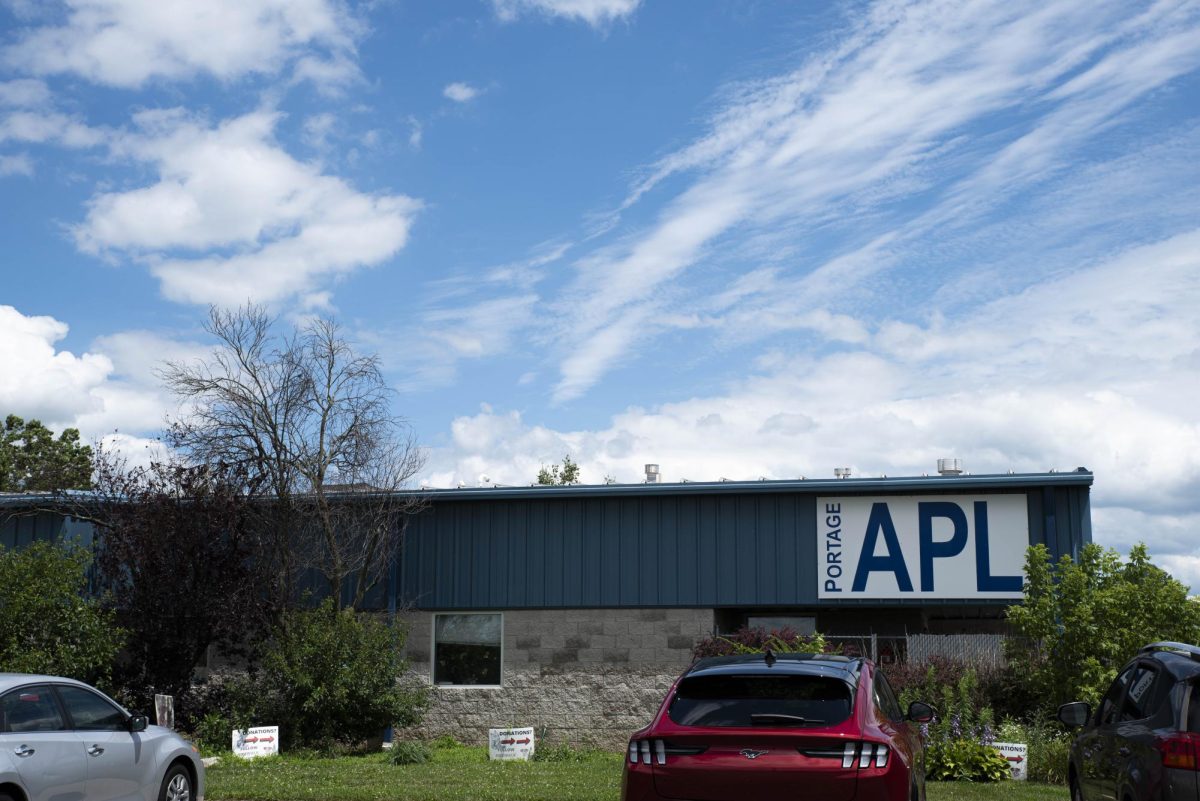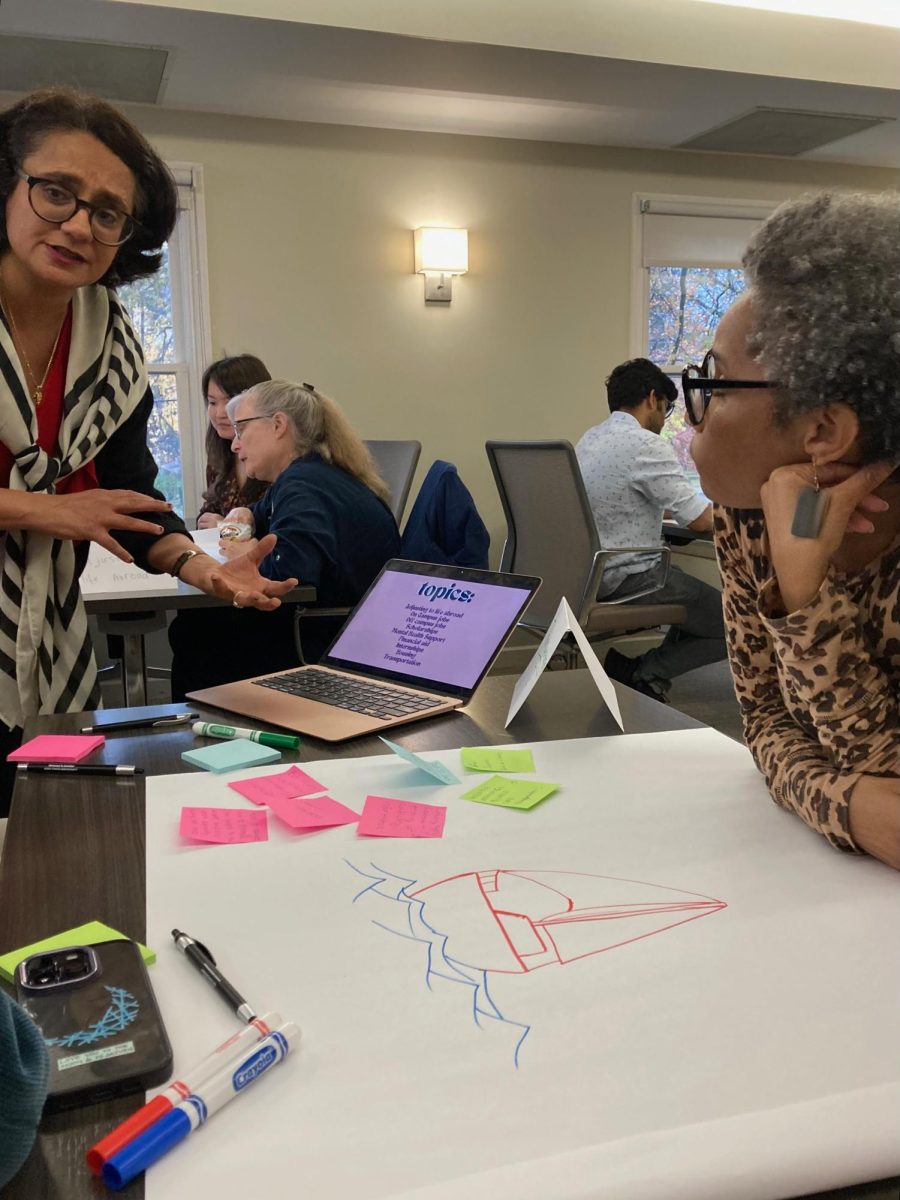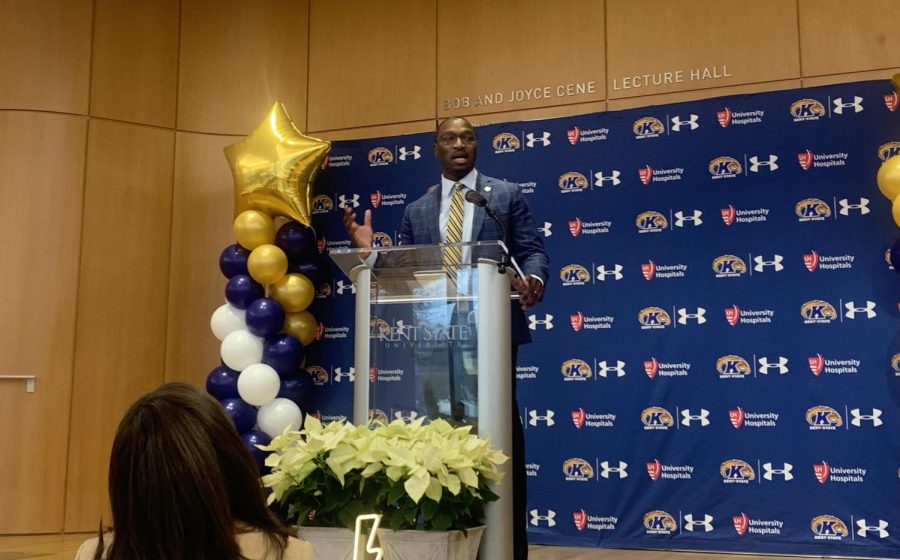On June 26, the Portage Animal Protective League’s humane agent went to investigate a report the organization received and discovered 187 dehydrated and malnourished animals.
Chalan Lowry, the executive director of the Portage APL, said after they discovered the animals and their living conditions, the owner chose to surrender them over to the APL.
“There were numerous, dozens of animals inside and none of them had food,” she said. “There might have been food in one cage but no one had access to water.”
In addition to limited access to food and water, the animals were found covered in filth, Lowry said.

“The bunnies and guinea pigs were living in filth, so some of their skin and their fur is stained from living in waste,” she said.
Livestock animals like horses and goats were found outside the house in similar conditions, causing the goats’ hooves to rot, Lowry said.
“Many of them were visibly thin … some were injured and couldn’t get up … just an overall complete lack of proper nutrition, proper housing and medical care,” she said.
Lowry said rotting hooves occur from living in poor conditions and affects animals like goats as they are constantly on their feet.
Since the APL did not have enough room to take care of all the animals rescued, Lowry said they turned to the following organizations: Herps Alive, FOCUS Rescue, Happy Trails Farm Animal Sanctuary, Maggie’s Mission, Parrot Hope Rescue, Rescue Village and Whispering Acres.
“It takes a village … it really does because we had 7 other rescues help us and we still have people reaching out,” she said.
Janine Smalley, the founder of the Whispering Acres Farm Animal Sanctuary and an alum, said she received a call from the APL asking if Whispering Acres could take in 4 sick goats, 2 horses and 2 sheep.
“They came severely dehydrated … loaded with parasites,” she said. “They all had hoof rot and hoof scald, which is a fungal infection between their toes where they could not walk because it hurt them so bad.”
Smalley said now the animals are thriving as they are undergoing a refeeding program to get to healthy weights. Their full recovery is expected to take up to 3 to 6 months.
Following the animals’ arrival at Whispering Acres, they were checked for parasites and began to start the treatment for such, she said.
“We monitor their fecals every other day to make sure their parasite load is going down,” Smalley said.
Since the animals had parasites and were malnourished, they required vitamin B, anti-inflammatory medications and antibiotics daily, she said.
The animals are also getting around-the-clock injections of medications and being fed electrolytes, Smalley said.
“Some of them had to be hand fed electrolytes because they were too weak,” she said. “They are all having a very tailored diet to help accommodate their nutritional deficit.”
The other animals’ recovery processes will vary on their sizes and the conditions they were found in. For example, the baby cow is expected to have a longer recovery process, Lowry said.
“There was a baby cow who couldn’t get up because he was so malnourished,” she said. “He has been under 24-hour [veterinarian] care with IV fluids, nutrients and all of those things, so he’s probably going to take a bit longer to recover.”
All of the animals have been able to start their recovery process aside from a goat who was in a bad state, which Lowry said made it difficult to save him.
Once the domestic animals like bunnies, cats and dogs finish their recovery, they will be available for adoption which she said is the end goal.
“We take them from where they are, nurse them back to health and find them loving homes where this isn’t going to happen to them again,” Lowry said.
Smalley said to prevent another situation like this from occurring, people should not be hesitant to look further into something that does seem right.
“The most important thing in your job or everyday life is if you see something, say something,” she said.
After the animals were found, Smalley said she saw people commenting on a Facebook page, saying how they saw the house and its condition but never approached the owner to see if they needed help.
“It is so important to go directly to that person and say, ‘Hey, do you need some help?’ or ‘Hey, I got a question, is everything okay?’” she said.
For pet owners, Smalley said they should not be afraid to ask others for help if they are in need of it.
“Ask questions. Reach out if you are struggling,” she said. “I always will say I never believe any case is purposeful, I truly don’t.”
For those interested in helping the APL, Lowry said they are accepting donations of money and items on their Amazon and Chewy wishlists, which can be found on their website.
Another way to help is by spreading awareness about this case and the APL, as it can help people become aware of these animals and help them find homes, she said.
“If you can share our story on Facebook or even in an email … it still helps spread the word that we need help,” Lowry said.
Adriana Gasiewski is a reporter. Contact her at [email protected].









jeff glidden • Jul 11, 2024 at 6:04 pm
Go to the APL website – there are all kinds of ways to help the organization. Donations…volunteering, etc.. What a great way for KSU orgs to donate time and fundraising efforts – they can use the help. : )